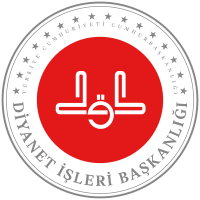
Photo from wikipedia
Abstract How does Turkey's Presidency of Religious Affairs (Diyanet) act as an instrument of foreign policy (FP)? What are the factors that allow such an instrumentalization of Islam in Turkish… Click to show full abstract
Abstract How does Turkey's Presidency of Religious Affairs (Diyanet) act as an instrument of foreign policy (FP)? What are the factors that allow such an instrumentalization of Islam in Turkish FP? In addressing these questions, this paper uses semi-structured expert interviews from Bulgaria and the Netherlands. Although both countries host a sizeable Muslim minority, these populations differ in their characteristics and historical ties with Turkey. Comparing Diyanet’s role in the Netherlands with its recent Turkish-Muslim diaspora, and in Bulgaria with its centuries-old Muslim minority allows us to reveal variation in the practical engagement strategies that Diyanet adopts in different country contexts. Thus, this paper advances two main claims; first, Diyanet serves as a primary FP tool of Turkey in countries with a significant Turkish-Muslim minority. Secondly, this instrumentalization destabilizes secularization projects both at home and abroad.
Journal Title: Politics and Religion
Year Published: 2018
Link to full text (if available)
Share on Social Media: Sign Up to like & get
recommendations!